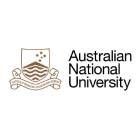Master of Science in Nuclear Science
Master of Science in Nuclear Science
Knowledge of nuclear science is increasingly important across diverse fields, from pure scientific endeavours through to medical physics, industrial processes, mining, security, defence and policy development. The Australian National University is the only university in Australia that offers postgraduate education in nuclear science and is the ideal location to pursue…
Categories
COURSE DESCRIPTION
Knowledge of nuclear science is increasingly important across diverse fields, from pure scientific endeavours through to medical physics, industrial processes, mining, security, defence and policy development. The Australian National University is the only university in Australia that offers postgraduate education in nuclear science and is the ideal location to pursue an advanced degree in this growing field.
Over two years, you will study the fundamentals and applications of nuclear science, including materials analysis, dating techniques, nuclear medicine, and nuclear energy. The degree is a mix of coursework and projects, comprising individual and group-based research. You will develop the scientific background you need for informed debate on nuclear issues, without advocating a particular position.
You will have access to the cutting-edge equipment in the laboratories of the Australian Heavy Ion Accelerator Facility, with many opportunities to undertake laboratory-based training, as well as access to academics who are at the forefront of research in basic and applied nuclear science. Some examples of where our graduates have found themselves include: research roles, both fundamental (university) and applied (medical/industrial); regulatory roles in the commercial (mining) and government (radiation protection, customs, security) sectors; and analyst and policy roles in government. Our graduates occupy senior roles across a range of private companies and government departments.
Career Options
ANU ranks among the world’s very finest universities. Our nearly 100,000 alumni include political, business, government, and academic leaders around the world.
We have graduated remarkable people from every part of our continent, our region and all walks of life.
REQUIREMENTS
Applicants must present a Bachelor degree or international equivalent
- with a minimum GPA of at least 5.0/7.0 and with at least 6 courses in a cognate discipline, which must also have a minimum GPA of 5.0/7.0. or
- with completion of the Graduate Certificate of Nuclear Technology Regulation with a minimum GPA of at least 5.0/7.0 and at least 2 courses in a cognate discipline, which must also have a minimum GPA of 5.0/7.0
The GPA requirement for this program must be met by both the program as a whole, as well as by the courses in the cognate disciplines. Where more than the specified number of cognate courses have been completed by the applicant, ANU will take the best courses when assessing the cognate GPA.
Mathematics – assumed knowledge : Background knowledge equivalent to high-school maths study is recommended but not essential. Prospective students may wish to take a Mathematics diagnostic test to ascertain their current level of Mathematics.
English Language Requirements
IELTS Academic and IELTS UKVI Academic [excluding One Skill Retake and IELTS Online] – Overall score of 6.5 overall with minimum 6.0 in each band.
TOEFL iBT Paper Edition and TOEFL iBT [excluding Paper Edition and Home Edition] – Overall score of 80 (Reading – 20; Writing – 20; Listening – 18; Speaking – 18).
Cambridge C1 Advanced – Overall score of 176 minimum 169 in each band.
PTE Academic and PTE Academic UKVI [excluding PTE Academic Online] – Overall score of 64 minimum 55 in each band.
EDUCATIONAL INSTITUTION
The Australian National University (ANU) is a public research university and member of the Group of Eight, located in Canberra, the capital of Australia. Its main campus in Acton encompasses seven teaching and research colleges, in addition to several national academies and institutes.




